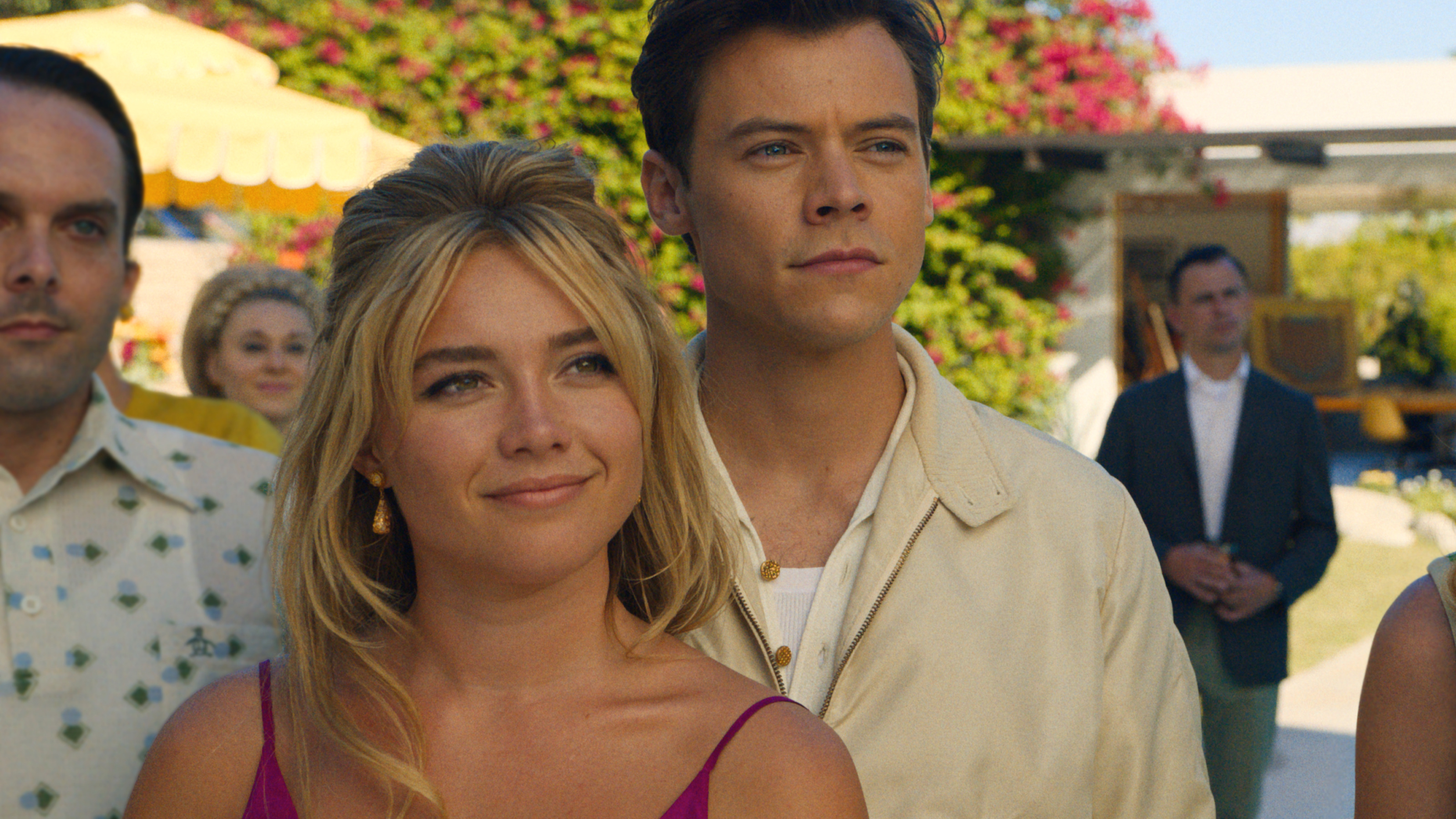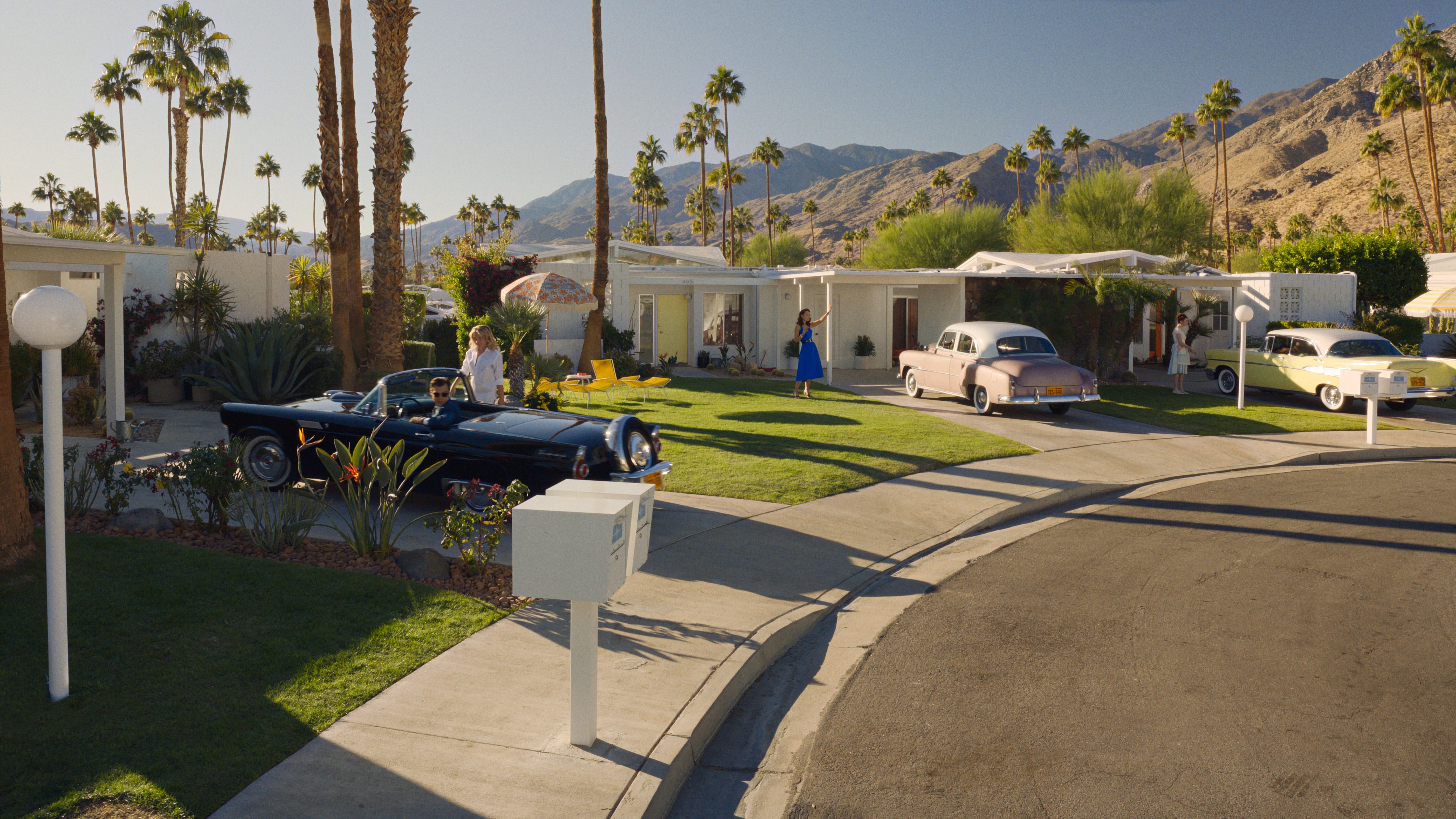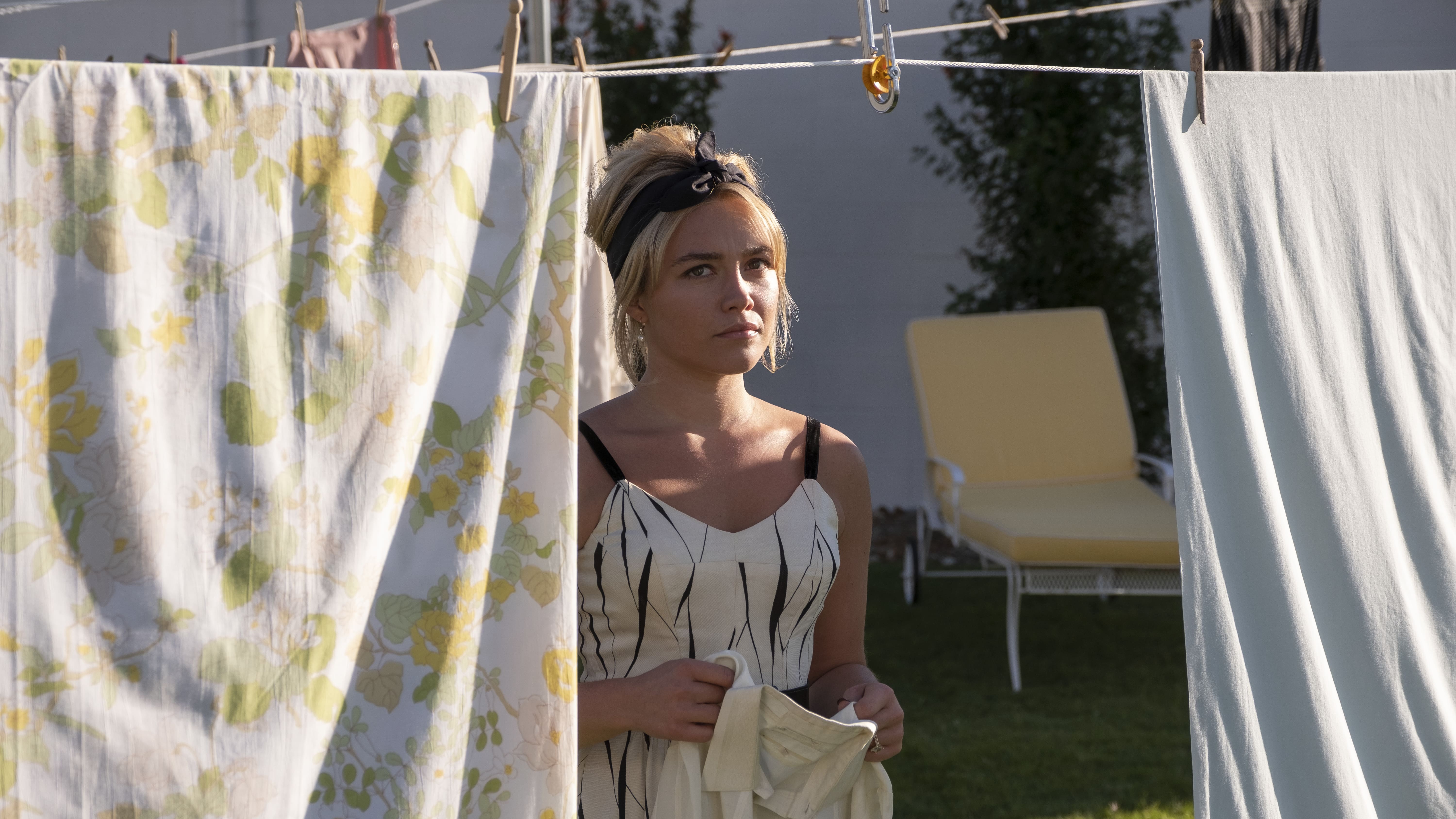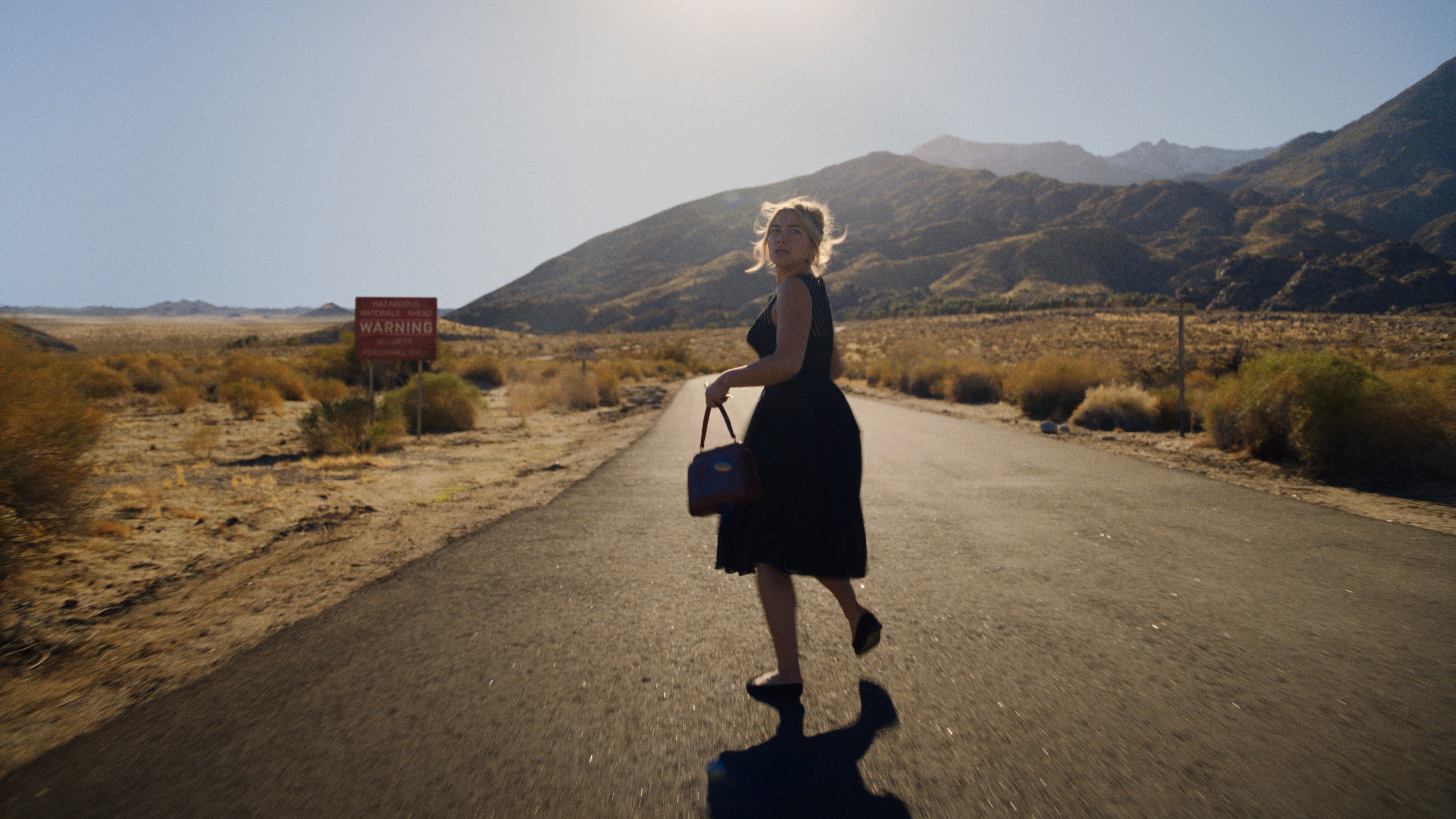Unless you’ve remained oblivious to the tabloid hysteria, you’ll know that Don’t Worry Darling has caused quite the social media stir in recent weeks. Not for anything much to do with the film itself, mind, but for the host of off-screen controversies that supposedly played out during and after its production.
Those dramatics – true or otherwise – warrant little more than a passing mention here, but they do bring into stark relief the comparably less interesting tensions that dominate Don’t Worry Darling’s on-screen story.
Director Olivia Wilde’s sophomore feature (after 2019’s excellent Booksmart) is far from a badly-made movie, but its technical merits aren’t enough to forgive its labored plot – nor the silliness that arises before the credits roll.
My kind of town

Set in the utopian Californian town of Victory in the 1950s, Don’t Worry Darling follows Alice (Florence Pugh) and Jack Chambers (Harry Styles), a young couple living a picture-perfect existence in a small community of equally perfect families.
Their nights are filled with dancing, dinner parties and lustful endeavors, while the days see Jack and the rest of Victory’s husbands driving off to work at the mysterious Victory Project – an out-of-town development program led by Frank (Chris Pine), the founder of Victory.
Alice and the town’s other housewives are happy enough to cook, clean and socialize in the absence of their partners, with the understanding that they exercise discretion towards the Victory Project and the work it involves. But when strange occurrences begin to rock her daily routine, Alice launches an investigation into the true nature of her idyllic life.
So far, so intriguing – and the first thing to note is that production designer Katie Byron sells the movie’s setting and then some. Victory looks and feels like a lived-in luxury catalog; swimming pools sparkle, palm trees glisten and the town’s residents are so uniformly attractive that Marilyn Monroe wouldn’t draw a second look if she walked down the street.

Wilde plays to the beauty of this set design whenever she can, often using the grandeur of the film’s desert surroundings – which aren’t too far removed from those in Jordan Peele’s Nope – as an effective contrast to the aggressively artificial town at its center.
The acting in Don’t Worry Darling is less consistently arresting. The elephant in the room concerns pop star-turned-actor Styles, who begins the movie convincingly enough before descending into drama-class-dramatics when emotions come to the boil in later scenes. He isn’t as awful as *that* promotional clip led many to believe, but don’t expect the musician to be adding an Oscar to his Grammy collection any time soon (sorry, Stylers).
The main reason Styles’ lack of professional training becomes so painfully obvious is Florence Pugh. Unfortunately, the Hollywood newcomer finds himself (literally) face-to-face with one of the best actors of this generation, and Pugh is never less than compelling as Alice. It’s easy to assume that Shia LaBeouf – who was originally cast as Jack, pre-controversy – would have fared far better than Styles opposite the Little Women star, but even a performer of his considerable talent may still have been made to appear the smaller of the two actors (despite Jack’s role as the supposed breadwinner).
The movie’s supporting cast – which includes Gemma Chan, Nick Kroll and Wilde herself – are credible enough, but only Chris Pine comes close to matching the nuances of Pugh’s performance. His character, Frank, is the most interesting of the bunch, and his brief interactions with Alice make for some of Don’t Worry Darling’s best scenes.
The long road to nowhere

The movie’s biggest problems, then, are not technical – nor are they performative, irrespective of Styles’ limited acting experience. Instead, Don’t Worry Darling suffers from a far more damaging drawback: a bad story.
We won’t go into details, in fear of spoiling the film’s biggest (and only) surprise – but know that the aforementioned synopsis stops short of a frantic final 30 minutes. In other words, the bulk of Don’t Worry Darling is dedicated to watching Alice notice things, question them, ignore them and repeat the cycle until she finally takes meaningful action. Yes, the movie’s title is a nod to the gaslighting of its female characters, and it makes sense that Alice is frequently made to feel paranoid – but we’re kept in the dark about Victory’s true nature for so long that, by the time the big reveal comes, our interest is all fizzled out.
And even if Don’t Worry Darling had revealed its secrets earlier on, the film’s twist is so unoriginal, so run-of-the-mill, that we’re left frustrated by Wilde’s unwillingness to try something bolder. Her movie borrows countless stylistic and thematic ideas from elsewhere while adding very little that other filmmakers haven’t already done before. Shades of Inception, The Matrix, Edward Scissorhands, The Truman Show and The Stepford Wives are all present here – which wouldn’t be a problem if Don’t Worry Darling made an effort to say anything interesting for itself.
Our verdict

In all, then, Olivia Wilde’s Don’t Worry Darling is a technically impressive movie whose value – like the fictional town it depicts – remains regrettably superficial. Florence Pugh shines, though not even her immeasurable talent can save this familiar fantasy from ending with a whimper.
Don’t Worry Darling is now playing exclusively in theaters worldwide.




